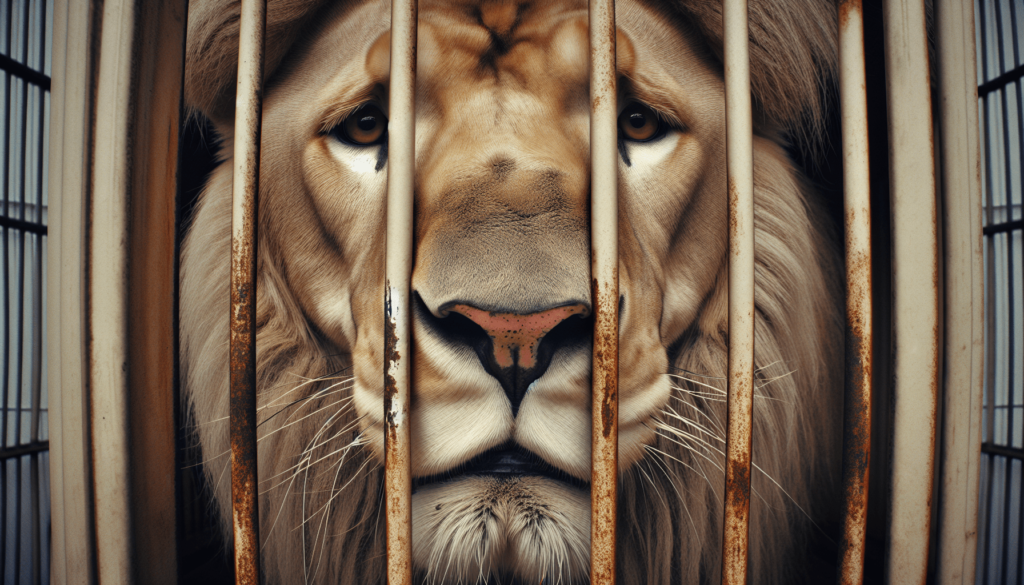Are Zoos and Animal Parks Beneficial or Harmful to Animals?
Zoos and animal parks have long been a source of controversy among animal rights activists and the general public. Some argue that they play a crucial role in conservation efforts and education, while others believe they are detrimental to the well-being of the animals. In this article, we will explore the various arguments surrounding zoos and animal parks to help you make an informed decision on the matter.

History of Zoos and Animal Parks
Zoos have been around for centuries, with the oldest known zoo dating back to the ancient Egyptians. They were originally designed as a way for humans to showcase exotic animals for entertainment and prestige. Over time, zoos have evolved to focus more on conservation, education, and research.
Understanding the Evolution of Zoos
Zoos have transformed over the years from being purely for entertainment to places of education and conservation. This shift in focus has led to more comprehensive care for the animals, but the debate over the ethical implications of keeping animals in captivity continues.
The Purpose of Modern Zoos and Animal Parks
Modern zoos and animal parks claim to have a primary focus on conservation, education, and research. They often participate in breeding programs for endangered species, conduct research on animal behavior and biology, and educate the public about wildlife and conservation efforts.
Conservation Efforts in Zoos
Many zoos play a crucial role in conservation efforts by breeding endangered species and reintroducing them into the wild. For example, the San Diego Zoo has successfully bred and released California condors back into their natural habitat.
Animal Welfare in Zoos and Animal Parks
One of the biggest concerns surrounding zoos and animal parks is the welfare of the animals in captivity. Critics argue that animals in captivity do not have the same quality of life as those in the wild, leading to physical and psychological problems.
Assessing Animal Welfare in Zoos
Zoos are constantly under scrutiny for their treatment of animals, with many organizations conducting assessments and inspections to ensure the animals are well cared for. However, some argue that even the best zoos cannot replicate the natural habitats that animals would have in the wild.
Arguments Against Zoos and Animal Parks
Opponents of zoos and animal parks raise several arguments against keeping animals in captivity. These include concerns about animal welfare, the impact on conservation efforts, and the ethical implications of confining animals for human entertainment.
Ethical Considerations
Many people believe that it is unethical to keep animals in captivity for purely human enjoyment. They argue that animals have the right to live freely in their natural habitats and should not be confined for the entertainment of humans.
Impact on Conservation Efforts
Some critics argue that zoos and animal parks may actually harm conservation efforts by taking animals out of their natural habitats. They argue that the focus should be on preserving habitats and preventing species extinction, rather than keeping animals in captivity.

The Future of Zoos and Animal Parks
As the debate over the ethics of zoos and animal parks continues, some organizations are working towards more sustainable and ethical alternatives. These include sanctuaries, wildlife reserves, and conservation organizations that focus on habitat preservation rather than captivity.
Alternatives to Traditional Zoos
Many organizations are exploring alternatives to traditional zoos, such as wildlife reserves and sanctuaries that provide a more natural environment for animals. These alternatives focus on habitat preservation and rehabilitation rather than captivity.
The Role of Education and Conservation
Some argue that the future of zoos lies in their ability to educate the public about wildlife conservation and preservation efforts. By focusing on these aspects, zoos can shift their priorities towards the well-being of animals and their natural habitats.
Conclusion
The controversy surrounding zoos and animal parks is multifaceted, with arguments on both sides of the debate. While zoos play a role in conservation and education, concerns about animal welfare and ethical implications persist. As you continue to learn more about the topic, consider the various perspectives and form your own opinion on the matter.

